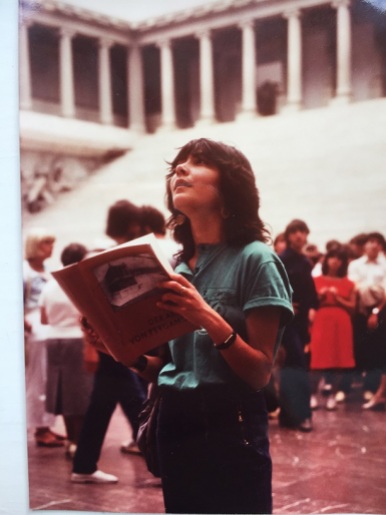
Where to go for advice on some great German reads? You can turn to the excellent New Books in German if you’re looking for new titles. And now there’s also an amazing compendium: The German Riveter. It covers fiction and poetry written since the fall of the Berlin Wall 30 years ago, as well as literature from the Nazi period (Heinz Rein, Hans Fallada, Timur Vermes), poetry of the Holocaust, the ‘Krimi’, children’s books, memoir ‘snapshots’ of 1989 and English-language extracts of untranslated works. Click here for FREE access to the full text, illustrated by the great Axel Scheffler.
The German Riveter was produced by the European Literature Network with support from Arts Council England, the Goethe Institut, the German Embassy in London, the British Council, Frankfurt Book Fair and the British Library. It’s the seventh edition of The Riveter, previous ones having focused on writing from Poland, Russia, the Nordic countries, the Baltics, Switzerland and queer writing from Europe. The launch took place at the British Library: EuroLitNet founder Rosie Goldsmith interviewed authors Durs Grünbein, Julia Franck and Nino Haratischvili and their translators Karen Leeder, Charlotte Collins and Ruth Martin, all of whom read out in German and English from their work.
It was a privilege for me to be asked to review ‘F’, a novel by Daniel Kehlmann which I can highly recommend. You can find out why on pp. 64-65 of The German Riveter.
The fall of the Berlin Wall is a subject which began interesting me years before it occurred. The potential for it was the focus of my International Relations dissertation in 1986. I first visited East Berlin in 1984. I recall especially well the visit to the Pergamon Museum, not only thanks to its astonishing contents but also because of the conversation with a museum attendant who told me how lucky I was to be there one moment, and wherever else I might wish, the next. The subsequent year, while completing my degree at POLSIS, I was fortunate to be awarded a residency at the West German foreign ministry’s Research Institute for Political Studies; it enabled me to conduct field research into the potential for German reunification, including interviews with personalities across the political spectrum. So, for me the experience of seeing the Wall coming down in 1989 was charged with layers of emotion.
By mere coincidence, the Wall plays a large role in one of my favourite reads of 2019, Deborah Levy’s The Man Who Saw Everything: it is integral to the plot but also serves as a metaphor, as a recurring motif… This is a novel to treasure, the kind which rewards you with fresh discoveries as you return to it.
So, no shortage of suggestions here if you’re looking for some great books! Happy reading!





